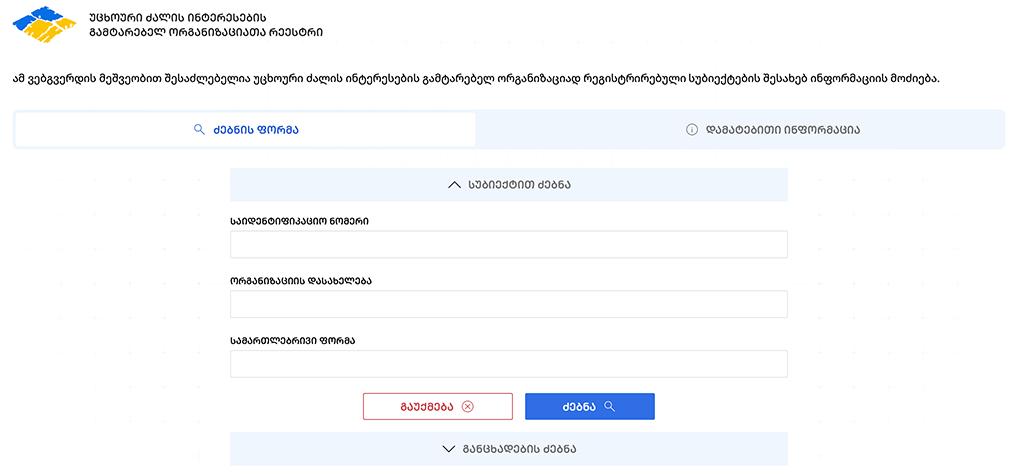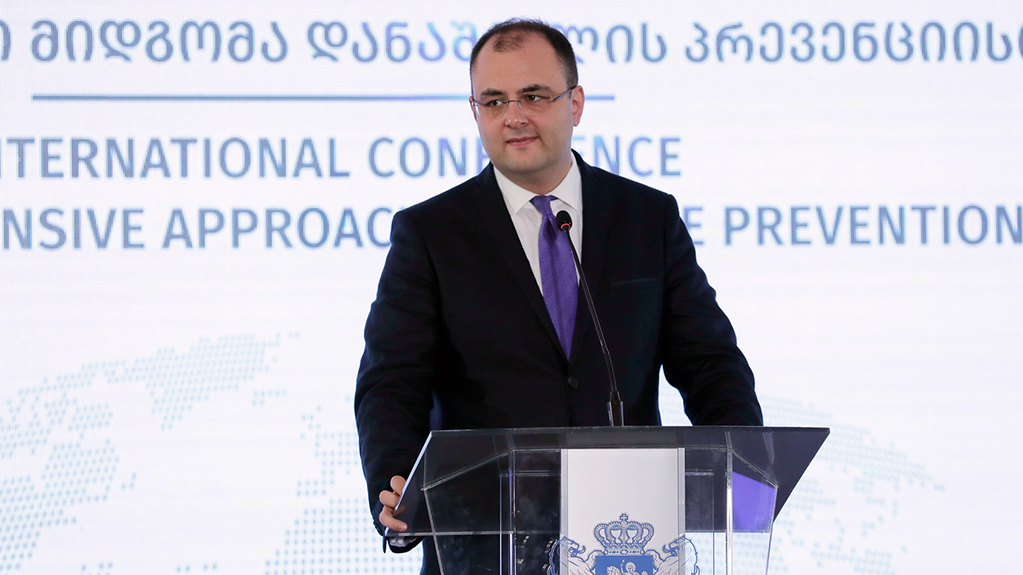The Ministry of Justice of Georgia has launched the Register of Organizations Carrying the Interests of a Foreign Power, a measure outlined by the Russian Law. Currently, no organizations are listed in the new register.
News
The Russian Law on so-called Foreign Agents, which halted Georgia's process of joining the European Union, came into force in June after being signed by the Speaker of the Parliament, Shalva Papuashvili. To enforce the law, a new department was established within the National Public Registry Agency - the Department of Financial Declarations. This department's main responsibilities include maintaining the "Register of Organizations Carrying the Interests of a Foreign Power" and ensuring its publicity.

Within one month from August 1st, all non-governmental and media organizations receiving more than 20% of their income from grants provided by international organizations are required to register as carriers of the interests of a foreign power. More than 150 organizations have declared that they will not comply with this law, which they consider unconstitutional, and will not register in the defamation register.
Failure to register or submit a financial declaration will result in a fine of 25,000 GEL. The law also provides for fines of 10,000 and 20,000 GEL for non-compliance with the Ministry of Justice's requirements. Appealing the fine in court will not halt its enforcement.
The Russian law has been challenged in the Constitutional Court. As of today, three lawsuits have been submitted to the court: one by the President, another by 121 media and non-governmental organizations, and a third by 38 opposition deputies of the Parliament. All three lawsuits will be combined into one proceeding and will be considered in a plenary format.
The plaintiffs argue that the law contradicts Article 78 of the Constitution, which obliges all constitutional bodies to take all measures within their powers to ensure Georgia's full integration into the European Union and the North Atlantic Treaty Organization (NATO). The President's 69-page constitutional complaint asserts that foreign funding does not necessarily imply Foreign Influence over the recipient and does not justify restrictive measures against civil society organizations and mass media. This is especially true when such funding comes from international organizations of which Georgia is a member or seeks to join. The President believes that under the conditions imposed by the law, it is virtually impossible for non-governmental organizations to secure funding, and without such funding, their activities would be practically unviable.
The plaintiffs request the use of a temporary measure to suspend the implementation of the law until a final decision is made. Additionally, they plan to submit a complaint to the European Court of Human Rights, where they will also request a temporary suspension measure.
If the courts do not suspend the law, some of the sanctions will take effect on September 3rd.















